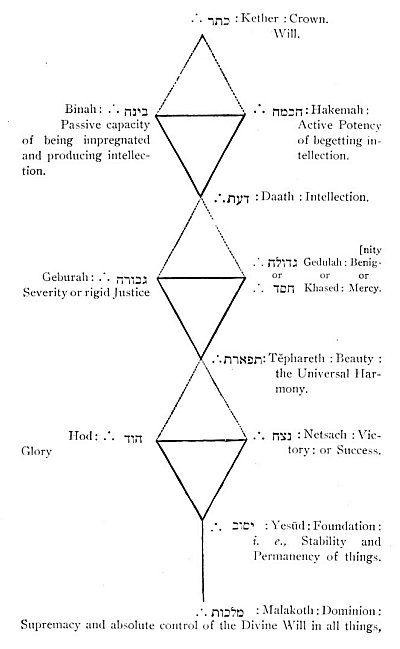p. 713
and opens out the unfathomable mystery of the One Supreme into more explicit and manageable Forms, which express not indeed His Essence, which is wholly beyond our reach and higher than our faculties can climb, but His Will, and so feeds an endless enthusiasm by accumulating forever new objects of pursuit. We have long experienced that knowledge is profitable, we are beginning to find out that it is moral, and we shall at last discover it to be religious.
God and truth are inseparable; a knowledge of God is possession of the saving oracles of truth. In proportion as the thought and purpose of the individual are trained to conformity with the rule of right prescribed by Supreme Intelligence, so far is his happiness promoted, and the purpose of his existence fulfilled. In this way a new life arises in him; he is no longer isolated, but is a part of the eternal harmonies around him. His erring will is directed by the influence of a higher will, informing and moulding it in the path of his true happiness.
Man’s power of apprehending outward truth is a qualified privilege; the mental like the physical inspiration passing through a diluted medium; and yet, even when truth, imparted, as it were, by intuition, has been specious, or at least imperfect, the intoxication of sudden discovery has ever claimed it as full, infallible, and divine. And while human weakness needed ever to recur to the pure and perfect source, the revelations once popularly accepted and valued assumed an independent substantiality, perpetuating not themselves only, but the whole mass of derivative forms accidentally connected with them, and legalized in their names. The mists of error thickened under the shadows of prescription, until the free light again broke in upon the night of ages, redeeming the genuine treasure from the superstition which obstinately doted on its accessories.
Even to the Barbarian, Nature reveals a mighty power and a wondrous wisdom, and continually points to God. It is no wonder that men worshipped the several things of the world. The world of matter is a revelation of fear to the savage in Northern climes; he trembles at his deity throned in ice and snow. The lightning, the storm, the earthquake startle the rude man, and he sees the divine in the extraordinary.
The grand objects of Nature perpetually constrain men to think of their Author. The Alps are the great altar of Europe; the nocturnal
p. 714
sky has been to mankind the dome of a temple, starred all over with admonitions to reverence, trust, and love. The Scriptures for the human race are writ in earth and Heaven. No organ or miserere touches the heart like the sonorous swell of the sea or the ocean-wave’s immeasurable laugh. Every year the old world puts on new bridal beauty, and celebrates its Whit-Sunday, when in the sweet Spring each bush and tree dons reverently its new glories. Autumn is a long All-Saints’ day; and the harvest is Hallowmass to Mankind. Before the human race marched down from the slopes of the Himalayas to take possession of Asia, Chaldea, and Egypt, men marked each annual crisis, the solstices and the equinoxes, and celebrated religious festivals therein; and even then, and ever since, the material was and has been the element of communion between man and God.
Nature is full of religious lessons to a thoughtful man. He dissolves the matter of the Universe, leaving only its forces; he dissolves away the phenomena of human history, leaving only immortal spirit; he studies the law, the mode of action of these forces and this spirit, which make up the material and the human world, and cannot fail to be filled with reverence, with trust, with boundless love of the Infinite God, who devised these laws of matter and of mind, and thereby bears up this marvellous Universe of things and men. Science has its New Testament; and the beatitudes of Philosophy are profoundly touching. An undevout astronomer is mad. Familiarity with the grass and the trees teaches us deeper lessons of love and trust than we can glean from the writings of Fénélon and Augustine. The great Bible of God is ever open before mankind. The eternal flowers of Heaven seem to shed sweet influence on the perishable blossoms of the earth. The great sermon of Jesus was preached on a mountain, which preached to Him as He did to the people, and His figures of speech were first natural figures of fact.

Moe is the founder of GnosticWarrior.com. He is a father, husband, author, martial arts black belt, and an expert in Gnosticism, the occult, and esotericism.






